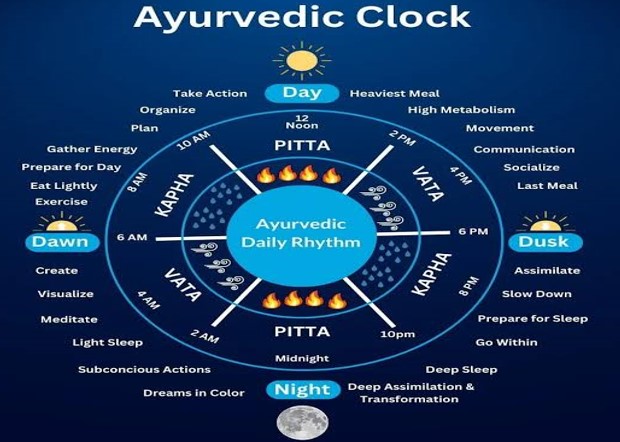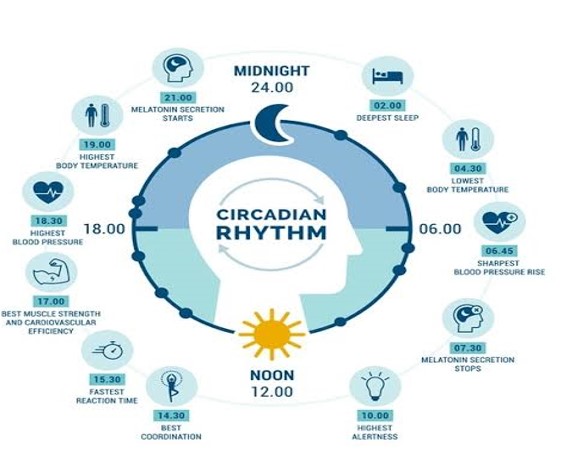Even the Best Ayurveda Doctor Is Useless If You Ignore Dinacharya – Your Health Can’t Be Outsourced
- Dr Rakesh VG
- Jul 2, 2025
- 3 min read
Updated: Jul 3, 2025
By Dr Rakesh Ayureshmi, Ayureshmi Ayurveda Wellness Centre, Kollam, Kerala, India
You can’t expect a mango tree to thrive if you water it once a week but let the soil dry out daily. Yet, this is exactly how many patients treat their health—seeking expert Ayurveda treatment while ignoring the root system of wellness: Dinacharya, the Ayurvedic daily routine. In a time of rising chronic illness and lifestyle burnout, even the most potent herbal medicine or the most skilled vaidya cannot compete with the destructive power of your own habits.
Dinacharya: Ayurveda’s Forgotten Superpower
In Ayurveda, Dinacharya (daily regimen) is not a suggestion—it is the foundation. These timeless rituals, when followed consistently, harmonize your internal clock (biological rhythm or circadian cycle) with nature’s rhythm.
Thousands of years before modern science discovered the circadian rhythm, ancient Ayurvedic texts like Ashtanga Hridayam and Charaka Samhita emphasized waking before sunrise (Brahma Muhurta), tongue scraping, abhyanga (oil massage), and mindful eating—not for spiritual aesthetics but for physical resilience.
“A physician may treat the patient with the best medicines, but if the patient is undisciplined in lifestyle, all treatment becomes fruitless.” — Charaka Samhita, Sutrasthana
Modern chronobiology confirms it. A study published in The Lancet Diabetes & Endocrinology (2017) links irregular routines with increased risk of obesity, depression, and cardiometabolic disease.¹ Your body is a clock—and it expects order.
Quick Fixes Are a Lie: Your Routine Is the Medicine
Why do patients want results in 3 days from a condition that developed over 3 years?
Because we’ve become addicted to quick relief—suppressing symptoms rather than restoring balance. Patients often blame the treatment when in fact the problem is non-compliance with the most basic principles of healing.
An Ayurveda doctor is like a sculptor. If the clay (your body and lifestyle) is dry and cracked, even the finest sculpting tools won’t help. Dinacharya moistens and prepares your “clay” for reshaping.
Case Insight: A 38-year-old woman with PCOS came to our clinic frustrated after multiple failed treatments. Instead of pills, we began with a strict Dinacharya routine—early rising, abhyanga, pranayama, mindful meals. Within 3 months, her cycles regulated naturally, even before major medications began. Why? Because her endocrine system responded to rhythm, not just herbs.
Discipline Heals What Doctors Cannot
We must shift the dialogue: Healing is not just about what you take, but how you live.
Modern studies support this ancient wisdom. In 2015, the Journal of Clinical Sleep Medicine published findings that people who maintained consistent daily habits—especially sleep and mealtimes—had significantly lower stress markers and better metabolic profiles.² This mirrors Ayurveda’s view that rutu sandhi (seasonal junctions), ahara (diet), and vihara (lifestyle) must all be in sync with dinacharya for true healing.
Here’s how skipping Dinacharya sabotages treatment:
Skipping Brahma Muhurta → disrupts melatonin-cortisol cycle → fatigue, anxiety
Irregular meals → disturbs agni (digestive fire) → poor absorption of herbs
No oil massage → vitiated vata → joint pain, insomnia, dryness
Lack of pranayama → unregulated prana vayu → brain fog, hormonal imbalance
You wouldn’t expect your phone to work without regular charging. Why expect your nervous, digestive, or endocrine systems to function without daily care?
Doctors Are Guides, Not Magicians
A common illusion in today’s wellness industry is that doctors can “fix” you. This is passive healing. Ayurveda demands active participation. In fact, the Charaka Samhita defines the ideal patient (rogi) as:
Smritimaan – one who remembers instructions
Buddhiman – one who applies knowledge wisely
Bhaakta – one who is disciplined in diet and lifestyle
Vashya – one who is willing to be guided
If you’re only visiting the doctor but not changing your daily patterns, you are outsourcing responsibility. Even divya aushadhis (divine medicines) fail when the soil is toxic.
Healing Begins at Sunrise, Not in the Clinic
Let this be your wake-up call. Literally.
Start small:
Wake before sunrise (even 30 minutes earlier than usual)
Sip warm water, scrape your tongue, and eliminate naturally
Do 10 minutes of oil massage—your nervous system will thank you
Eat your largest meal at noon, not at night
Go to bed by 10 PM without screens
These simple practices, when done daily, are more powerful than pills because they change your inner chemistry permanently. You shift from being disease-prone to disease-resistant.
“Discipline is remembering what you want.” — David Campbell
What do you want—temporary relief or lasting health?
In Ayurveda, the doctor is not the hero. You are. The vaidya gives direction, but only you can walk the path. Dinacharya is that path. It’s not glamorous, but it’s powerful.
It’s not the herb, it’s the habit.
It’s not the pill, it’s the pattern.
It’s not the doctor—it’s you.
Are you ready to stop outsourcing your health and start owning
“Even the best Ayurveda doctor is powerless if you ignore Dinacharya. Your healing starts at home, not in the clinic. Ayurveda is not magic—it’s rhythm. Honor it. Live it. Become it.”







Comments